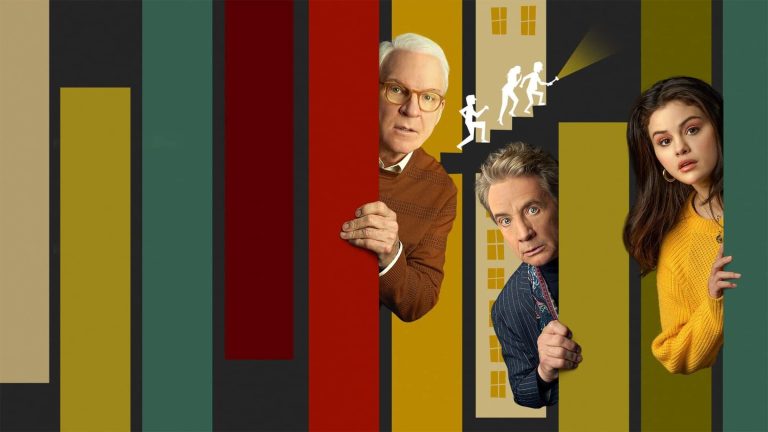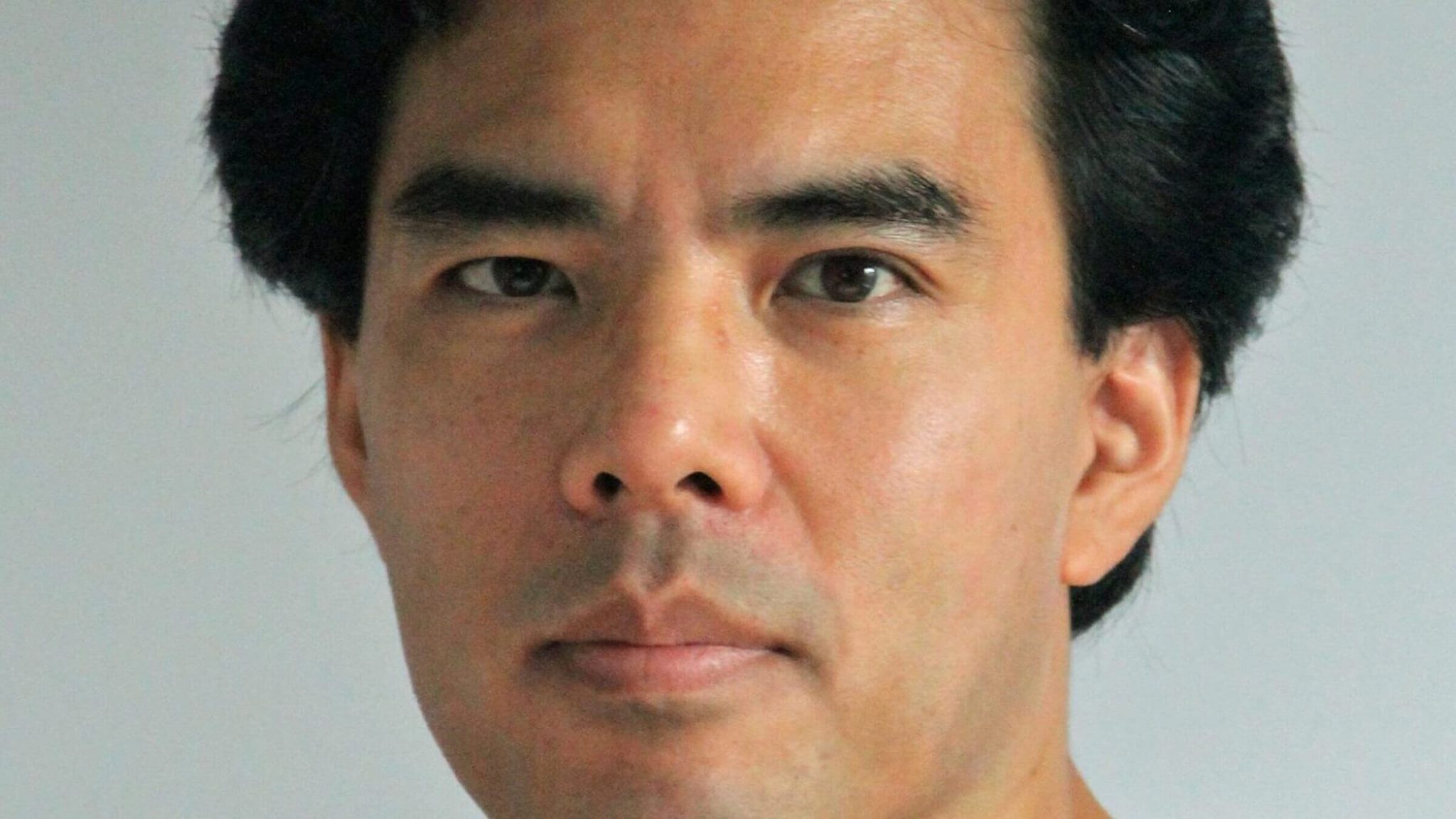
How would you like to learn the answer to the most difficult question a screenwriter will face — "Should I quit?"
Hollywood has thousands of hopeful screenwriters trying to write and sell to the same handful of studios or the couple dozen of production companies, managers, and agents that are really able to get screenplays bought and made. Beyond the Los Angeles area there are thousands more spread out through the rest of the country and beyond to other countries. But each and every year, new screenwriters break through and are discovered.
So let's assume you've done your job. Let's assume you've honed your craft to a point where you believe you're worthy to be in the conversation amongst those making a living as a screenwriter. You've written multiple scripts and hopefully have learned from the mistakes of each to grow and grow as a screenwriter.
Read ScreenCraft's Ten Common Screenwriting Mistakes and How to Fix Them
You've submitted your work to festivals, contests, competitions, workshops, and fellowships.
Read ScreenCraft's How to Network & Pitch at Pitch Fests, Film Festivals, and Industry Events
You've cold queried production companies, development executives, managers, and agents.
Read ScreenCraft's Writing the Perfect Query Letter for Your Scripts
You've networked. You've maybe found a job within the industry that allows you access to those key decision makers and you've chosen the proper times to pitch your work during drinks, lunches, dinners, and chance encounters in elevators.
Read ScreenCraft's 7 Studio Jobs That Give Screenwriters an Edge
As a result, you've hopefully had the chance to get your work read and considered by those decision makers. You've hopefully won some contests — or at least placed high — and have maybe even been granted meetings with managers, agents, producers, and development executives.
Read ScreenCraft's How to Turn a Screenwriting Competition Win Into a Career
And if you have made the efforts but haven't achieved some or all of these goals, you continue to strive to do so.
But years have gone by. You've had some minor successes, but it's still not happening. You're learning how difficult it truly is to sell an original screenplay. You're learning how competitive the market is for writing assignments.
Maybe it's been five years. Maybe it's been ten or more. And you're still not where you want or need to be.
Should you quit?
It's an honest question. Most screenwriters don't like to even talk about it.
Drawing inspiration from Hollywood screenwriters John August and Craig Mazin and their podcast — which recently covered this very subject in their episode Should You Give Up? — we tackle this difficult but important topic.
Beware of Non-Advice
In the podcast episode, John August remembered David Zucker's go-to answer when someone says, “Should I quit?” Zucker believes that he should say, “Yes, you should quit. And if you ignore that advice, you’re halfway there to making it."
August comments that it is a clever approach and representative of the advice that you normally receive when asking such a question, but it's also non-advice.
It's understandable to tell someone to never quit. Nobody wants to be the person to tell someone to walk away from their dreams. But that type of non-advice is often counterproductive. It doesn't give people the proper context to make a decision.
If we're going to be real about this heavy topic, let's be sure to consider all options and weigh the pros and cons.
Be Honest With Yourself
August states, "There’s a quality of self-delusion, which is so crucial to [any endeavor]."
Self-delusion is a common disease in the early ranks of screenwriters. Script readers for contests, fellowships, and workshops see it on a daily basis. The industry insiders that meet with screenwriters see it as well.
The greatest achievement an up-and-coming screenwriter can accomplish in their own writing process is the ability to be objective about your own work. And you attain that by reading dozens upon dozens of produced screenplays — especially given the amount that are available online these days. And then you read unproduced scripts from writing peers and groups. You then partner that with writing multiple screenplays and learning from your work.
You compare and contrast. You see where scripts succeed and fail. You do this as much as you write until you reach the tipping point where you can look at your own work after you've finished a draft, and be truly objective with it.
Mazin poses the perfect question that screenwriters then need to ask themselves: “Okay, if this just landed in front of me in a mix of scripts that eventually got turned into movies, would it even feel like it belonged in the same world of these other scripts? Or do I have enough evidence that actually this is not something that I can do at that level?”
Rejection is part of the journey, yes. Major screenplays that turned into major movies were rejected dozens of times by studios and producers before someone took a chance on them, yes.
But you can't let those notions cloud your vision when it comes to assessing your own work. You can't let your financial and emotional investments in this venture force you to continue on despite the knowledge that maybe it isn't working out the way you had hoped and dreamed it would.
Don't Fantasize About Being a Writer, Fantasize About Writing
Mazin elaborated, "What is it that you are fantasizing about? If you’re fantasizing about being a writer, that is dangerous. What you should be fantasizing about is writing. It’s actually a life of action not of being a thing and I think that people think because of what they see which is the final product that you’re a thing. I am a writer. If your identity is invested in that, then it’s going to be very, very hard for you to, A) honestly asses your own work and B) let it go if it’s not working. Because now you’ve entwined who you are with this imaginary position in the world. I don’t really feel like I have any position. What I do is write movies, but I don’t think about a position that I occupy. I think about the work I’m doing every day. So if you make it about the doing as opposed to the being, I think you’re already better off."
"Being a writer is a symptom of writing and a lot of people think that writing is a symptom of being a writer," he concluded.

Screenwriters tend to romanticize the life of a screenwriter. They think that the money is great, they're working on studio lots or from the comfort of their own home, they're working with Hollywood elite, and they get to enjoy the magic of seeing their words come to life.
When you're a professional screenwriter writing hour after hour, day after day, month after month, and year after year, the romance quickly fizzles. Mazin and August compare it to being married. "It is not the heady excitement of an early romance. It is not intoxication. It is that more subtle, calm satisfaction."
The grass is often greener on the other side — that is why people fantasize about the life of a writer. They forget that there is some actual work involved. Especially as a Hollywood screenwriter. You are forced to write things you don't want to write for reasons you may not agree with. You are forced to delete moments and characters that you love. Even the stuff that should be fun — writing action sequences, creating twists and turns that shock the audience, writing amazing visuals and moving emotional moments — is often quite difficult.
In short, being a professional screenwriter is like any job. You may like certain aspects of it and at the end of the day you may feel that you're in a trade that suits you — but when all is said and done, it is just that. A job.
When you take the romance out of it, are you still intrigued?
What Goals Do You Have in Life — Where Is Screenwriting on That List?
Some that write screenplays aren't interested in the fantasy. They may have careers inside or outside of the film industry that they enjoy.
Others might be considering it as a secondary option either later in life or early in life as they wait to figure out what they really want to do. When you take the romance out of the equation and look at screenwriting as less of a dream and more of a goal, where does that stand in your life?

If screenwriting is not as high on that list. If writing — not the fantasy of being a writer — isn't something that you absolutely need to do, then you need to stop and really think about where you are spending hours upon hours of your day.
The World Will Let You Know One Way or Another
The pursuit of any goal in life is about discovery.
You discover what you want and don't want to do in your life by going down roads you haven't traveled and learning from all mistakes, disappointments, failures, successes, and triumphs.
Dreams are nothing but dreams. When you've assigned deadlines, time frames, and actions to attain that dream, they become goals. When you venture off to achieve any goal, you discover things that you initially knew nothing about — especially in Hollywood.
I used to naively dream of being an actor and writer like Matt Damon and Ben Affleck during their Good Will Hunting days — until I moved to Los Angeles and quickly learned that I had no place in the acting world.
I used to dream of being a producer or development executive — until I began to work in development and quickly learned that I wanted to be the one writing the concepts, not hiring writers.
I used to dream of being an auteur — until I quickly saw that I wasn't wanting or willing to halt my life and dedicate almost every waking hour to direct a film. I discovered that I'd rather hand my story off to those that could.
You may discover during your screenwriting journey that you are better suited for other film industry jobs. You may find a new passion working on a film crew, working in development, working on the corporate end of things, working in marketing, or any other industry branch. You may find out that you're more of a film fan than you are a cinematic storyteller.
The world will push you where you are meant to go.
Right Now, You're Doing What Most Never Will
The key thing to remember about what you are trying to do right now as you ask this question — "When should I give up?" — is that you are doing what most will never do in life. You're taking a dream and turning it into a goal with action — and then seeing where the cards fall.
Most people in life never act on their dreams. They get jobs that pay the bills and support their families, but they never do anything about that dream that always captured their imaginations. They never took the time and chance to see if it was possible. They never threw caution to the wind and said, "I'm going to do what it takes to make this dream come true."

Sure, it doesn't always work out. That's the hard lesson in life. While our generation has grown up with the parental mantra of you can be whatever you want to be, the lesson we learn is that the true mantra should be you can try to be whatever you want to be, and what you are meant to be will be discovered.
So whether you decide to quit or not, you've already won. You've already accomplished what most never have and never will. And you can rest easy later in life — wherever you end up — with no regrets.
So Should You Quit?

Nobody can answer that question but you — but maybe these closing words will help.
I've "quit" many times in my career.
Back in 2006, after seven years in Hollywood — with some great jobs and experiences within the studio system — I hadn't had a major breakthrough in my screenwriting career. We had our first son in 2005. I left the studio to focus on my screenwriting and became a work-from-home dad. After a Christmas trip back to our home state of Wisconsin, something inside me told me that it was time to come home.
I didn't necessarily leave Hollywood to quit screenwriting, rather, I decided to move back home for my family to raise our son close to our loved ones in Wisconsin.
When plans were being made in that respect, my first marquee script happened to gain some major steam, leading to representation based off of a Paramount referral, and then to meetings with Sony, Warner Brothers, Universal, Dreamworks, and Disney.
My decision was made though. We were going home. I wasn't quitting screenwriting, but I was quitting my Los Angeles venture and leaving many possible opportunities behind.
I remember my last day at Sony. It was late at night. Dark. I was the only one in the office and one of the only people on the lot. I took my golf cart for one last ride. I drove past the Ghostbusters car I always loved to walk past during lunch. I drove past the basketball courts where I played ball with Adam Sandler. I drove around the sound stages where I saw cinematic magic happen first hand. And then I parked my cart one last time, got in my car, waved to the security guard who opened the gate for me, and drove off in tears.

I would still be writing, but I was leaving "the dream."
Jump to 2007. Wisconsin. I worked on a followup script and Lionsgate picked it up. My first paid screenwriting gig came to me after moving two thousand miles away from Hollywood. Sadly, it happened around the guild strike and wasn't renewed and was never made.
My working relationship with my manager lessened. He wasn't a believer anymore. We stayed signed together in case something came up. I did ALL of the work, to no avail.
I quit. I taught some screenwriting classes and took a president position of a prominent screenwriting support group.
I eventually started writing again. Wrote some more scripts. Tried to get them out, but by then it was so hard without any dedicated representation. I put all of my spec scripts into major competitions — and NONE of them made the next round.
I remember writing on my Facebook status: "I've never wanted to quit more than now..."
And that's what I did for a couple of years. I told myself things like, "I missed my window." I was lucky to have had the minor success I did. Most can't account for that so I thought that maybe I should just accept it.
I didn't write for quite awhile after that. I told others and even myself that I was — but I really wasn't.
Then, a chance email came my way. A producer from Los Angeles, originally a Wisconsin native, had emailed and said if there was anything he could do for the non-profit group I was presiding over, to let him know. I took a chance and pitched him some of my spec scripts. Long story short, he loved what he read and suddenly I'm hired to write a TV movie for his company. While I got paid, the movie was never made.
"Another flash in the pan," I thought. A couple months later he offered me another job, which lead to Blackout, a miniseries with a name cast that went into production. Another paid gig — but this time it was going to be made. I was flown out to the set in Los Angeles and for the first time I watched as my action and my words were being performed and spoken.
How many times had I "quit" now? Or at least thought my career was done?
It eventually came out on iTunes in 2014 and rose to #2 on the TV Show charts, beating out the likes of True Detective and Game of Thrones. But it suffered from a low budget as well as some questionable production draft changes and casting. It was then subjected to some excruciating reviews as a result.
There I was again. No heat came from the miniseries. No assignment offers. I eventually just emailed my manager and told him I needed closure and wanted to move on.
So again, despite some effort beforehand, I felt that it was over. I quit.
I stopped writing scripts. I began to consult with a Silicon Valley company and put full focus on that. But no writing. I was burnt out. The grind wore me down.
And then, in late 2014, I read a chance email about a screenwriting competition for Action Thrillers. Right up my alley. Usually I'd delete such an email notice because since I had made some money screenwriting, most competitions wouldn't let me in. However, the limit on this one was higher and I thought, "Well, what can it hurt?"
I entered and forgot about it.
Months later, I got an email saying that I was a semi-finalist. I didn't even know I had made the quarter-finals. I didn't get my hopes up. I didn't even tell my wife about it.
Then just before the holidays, I get an email saying that I'm a finalist — soon after that, I get one saying that I've won.
That was the 2014 ScreenCraft Action Thriller contest.
The next thing I know I'm taking calls with major companies and players. I'm asked if I want to help develop a new action franchise for a studio. While things didn't pan out on that front, the industry access carried over to today. My reinvigorated need to write has lead to major meetings and calls — and we even have an assignment going into production in the spring of 2018.
I'm still in the game despite having "quit" multiple times.
We like to think that we have all of the control over our destinies, but that just isn't so.
In life, we are discovering our journeys. We are discovering our destinations and we find that those destinations and goals are often ever-changing. Why? Because we all too often get in the way of our own destinies.
We stew upon failure and rejection, especially in the film industry. We break ourselves. If things don't go exactly as planned, we feel that it's the end. That perhaps it's time to quit.
You discover yourself in your screenwriting journey — or any life journey. You'll think that you want to be somewhere but you'll discover that maybe that's not where you really want to be. That's not quitting.
So, Again, Should You Quit?
I have three answers for you.
Never, because that answer will push those meant to be screenwriters further and harder.
Sometimes, because some of you are destined for bigger and better things beyond screenwriting — but at least you lived the dream.
Always, because on this screenwriting journey you will "quit" multiple times. It's inevitable with the amount of rejection and heart break involved. But each time you do, you'll reset and maybe find that the dream is still calling you.
Ken Miyamoto has worked in the film industry for nearly two decades, most notably as a studio liaison for Sony Studios and then as a script reader and story analyst for Sony Pictures.
He has many studio meetings under his belt as a produced screenwriter, meeting with the likes of Sony, Dreamworks, Universal, Disney, Warner Brothers, as well as many production and management companies. He has had a previous development deal with Lionsgate, as well as multiple writing assignments, including the produced miniseries Blackout, starring Anne Heche, Sean Patrick Flanery, Billy Zane, James Brolin, Haylie Duff, Brian Bloom, Eric La Salle, and Bruce Boxleitner. Follow Ken on Twitter @KenMovies
For all the latest ScreenCraft news and updates, follow us on Twitter and Facebook!
Tags
Get Our Screenwriting Newsletter!
Get weekly writing inspiration delivered to your inbox - including industry news, popular articles, and more!




























